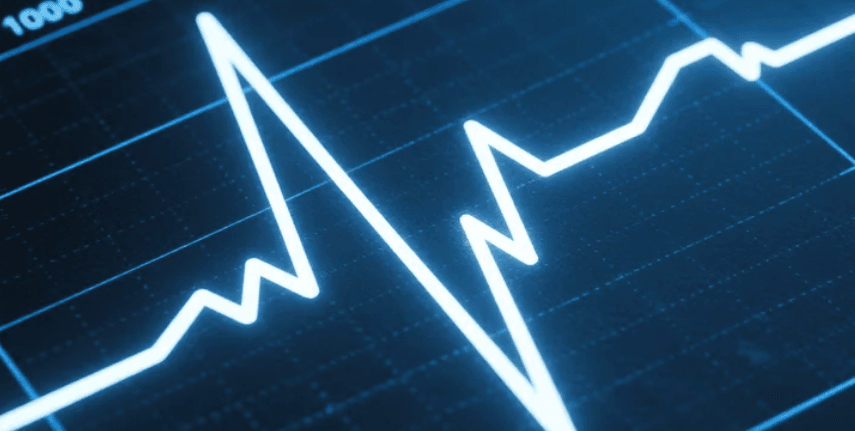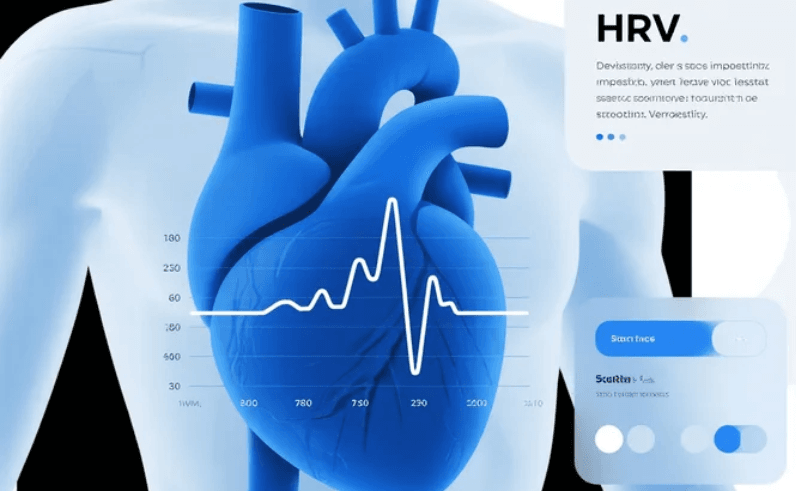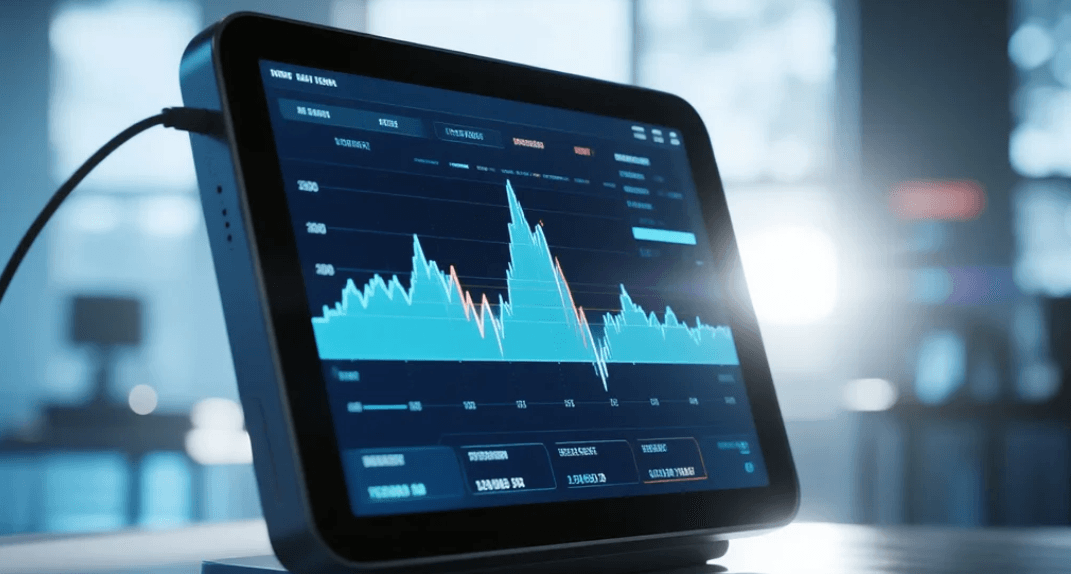Why Is My HRV So High?
Noticing Your HRV is High?
Heart Rate Variability (HRV) has become one of the most insightful health indicators in today’s wearable tech era. As more people track their HRV daily, one common question arises: “Why is my HRV so high?”
While a high HRV is generally associated with good health, recovery, and stress resilience, there are situations where unexpectedly elevated HRV levels might leave you puzzled or concerned.
In this article, we’ll break down what high HRV means, explore possible causes (both good and bad), and help you interpret your numbers using data-backed insights and tools like the BodyWave app.
What Is HRV, and Why Does It Matter?
HRV stands for Heart Rate Variability—the variation in time between successive heartbeats. It is regulated by your autonomic nervous system, specifically the balance between:
- Sympathetic nervous system: triggers "fight or flight"
- Parasympathetic nervous system: activates "rest and digest"
A higher HRV typically means your body is in a calm, recovered state and resilient to stress, while lower HRV may indicate fatigue, poor sleep, or chronic stress.
What Is Considered a High HRV?
HRV is highly individualized. What’s “high” for one person may be average or even low for another. However, here are some general reference points based on the rMSSD metric:
| Age Range | Average rMSSD HRV (ms) | High HRV (Top 10%) |
|---|---|---|
| 18–25 | 55–105 | 105+ |
| 26–35 | 45–90 | 90+ |
| 36–45 | 35–75 | 75+ |
| 46–55 | 30–65 | 65+ |
| 56+ | 25–55 | 55+ |
Note: Your HRV is influenced by sleep, physical activity, breathing rate, mental stress, and genetics. It is best to compare your current HRV against your personal baseline rather than global averages.
Good Reasons Why Your HRV May Be High
If your HRV is higher than usual, that might be a great sign. Here are positive explanations:
1. You’re Well-Rested
After a night of deep, restorative sleep, your parasympathetic system is more dominant, resulting in a higher HRV score. Your body is fully recovered, especially after rest days or vacations.
2. You're Physically Fit
Trained athletes and active individuals tend to have higher HRV. Regular aerobic training improves vagal tone (parasympathetic influence), which increases HRV naturally.
3. You’re Hydrated and Nourished
Proper hydration and nutrient-dense meals positively impact your heart and nervous system. A clean, anti-inflammatory diet can lead to improved HRV readings.
4. Reduced Stress Levels
If you’ve been meditating, doing breathwork, or spending time in nature, these relaxing activities can cause a spike in HRV due to reduced sympathetic activation.
5. You’ve Been Practicing Mindfulness
Mindfulness and breathing exercises activate the vagus nerve, promoting a calm state and elevated HRV.
Less Common but Concerning Reasons for High HRV
In rare cases, an unusually high HRV may be a signal of dysfunction. Consider the following scenarios:
1. Overtraining Rebound
After a period of overtraining or stress, your HRV may "rebound" to unusually high levels as your body tries to recover. This could be misleading if paired with lingering fatigue.
2. Heart Arrhythmia or Autonomic Dysregulation
In certain medical conditions like arrhythmias or POTS (Postural Orthostatic Tachycardia Syndrome), irregular heart rhythms may falsely elevate HRV readings.
3. Medication Effects
Beta blockers, anti-anxiety medications, or drugs affecting the nervous system may artificially raise HRV. Always consult your doctor if you're on medication and notice extreme HRV shifts.
4. Sensor or App Error
Faulty hardware or poor contact during measurement may give false readings. Make sure your device or app uses accurate technology, especially when measuring via phone cameras or wrist-based monitors.
How to Know If Your High HRV Is Healthy
Use the following checklist to evaluate if your high HRV is a positive sign:
- You feel energized and well-rested
- You’re sleeping deeply and consistently
- You don’t feel overtrained or exhausted
- Your heart rate is also stable and within normal ranges
- You’ve been eating well, hydrating, and avoiding stress
If all of the above are true, a high HRV is likely a reflection of your optimized health.
Using the BodyWave App to Track HRV Accurately
BodyWave is an innovative health app designed to track your HRV with precision and context. Unlike basic trackers, BodyWave gives a comprehensive picture of your health status.
Key BodyWave Features
- Real-time HRV monitoring: via smartphone camera or wearables
- Personalized baseline: compares your HRV today vs. your 30-day average
- AI health analysis: explains if your HRV is optimal, elevated, or abnormal
- Integrated recovery tracking: sleep, stress, mood, and exercise all in one view
Available now on iOS App Store or visit BodyWave.life for full feature overview.
Tips to Sustain a High (Healthy) HRV
If your HRV is high and you want to keep it that way, consider these science-backed strategies:
- Prioritize deep sleep: Go to bed and wake up at the same time daily.
- Stay hydrated: Dehydration lowers HRV.
- Practice breathwork: Try 5-minute box breathing daily.
- Exercise moderately: Avoid extremes; recovery is essential.
- Eat anti-inflammatory foods: Leafy greens, berries, and omega-3s.
- Limit alcohol and stimulants: Especially close to bedtime.
When to Seek Help About High HRV
If your HRV has spiked significantly above your baseline and you experience:
- Dizziness or shortness of breath
- Fatigue that doesn’t go away
- Irregular heartbeat sensations
- Ongoing chest discomfort
…consult your healthcare provider. Always consider HRV in the broader context of your health.
Conclusion: High HRV Is Usually a Good Thing
So, why is your HRV so high? Most of the time, it means you’re doing something right—sleeping better, managing stress, eating well, or staying active. A consistently high HRV is a reflection of a resilient and well-regulated nervous system.
But it’s important to track trends over time, not obsess over one-off spikes. Apps like BodyWave give you powerful insights, daily feedback, and context for your numbers—so you know when to celebrate progress or make adjustments.
Start tracking your HRV intelligently, and let your heart be your ultimate wellness guide.







BodyWave: Invest in Your Well-being!

